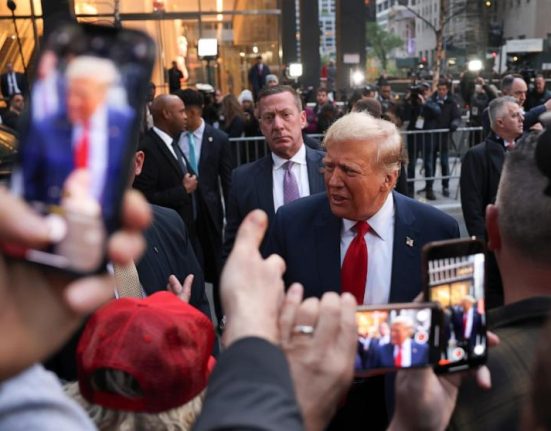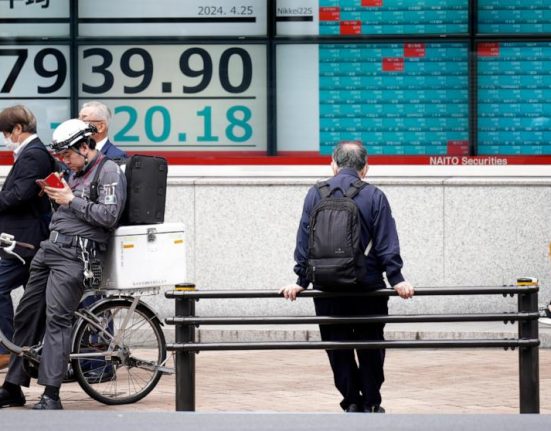A well-articulated sell strategy—and the discipline to stick with it—are among the most important qualities a patient investor can have, but they’re often overlooked. Most investors can explain why they bought a stock, but few can say, before they buy a stock, what would cause them to sell it.
The managers of the
fund (ticker: MIEJX) can. “We conduct what we call ‘a pre-mortem analysis,’ ” says Chris Sunderland, one of the $19.6 billion fund’s institutional portfolio managers. “We think about and write down what would need to go wrong and break down in the thesis and cause us to sell the [stock]. We go through this exercise before we buy it.”
Having a well-defined exit strategy gives the team confidence to hold their stocks long term, even when the market is negative on those stocks. “We’re not interested in short-term noise,” Sunderland says. The fund typically has about an eight-year holding period per stock, with a low turnover ratio of 10% recently.
The strategy has paid off. By being patient, Sunderland, along with the fund’s two co-managers, Daniel Ling and Filipe Benzinho, has beaten the fund’s benchmark and its peers in Morningstar’s Foreign Large Blend category over the past three, five, 10, and 15 years by a wide margin. It had a 10.3% annualized return over the past 15 years, versus the average category fund’s 8.5% and the benchmark’s 8.4% as of Feb. 29. The fund’s 1.01% expense ratio is low for an active foreign fund, and many brokers waive its 5.75% load.
Because so much short-term speculation occurs on Wall Street, the fund benefits from “time arbitrage”—waiting out short-term negative sentiment and benefiting from long-term growth. The team often seeks companies with strong free cash flows and balance sheets suffering temporary setbacks that impatient investors dislike.
Advertisement – Scroll to Continue
Such a strategy doesn’t work so well with low-quality cyclical stocks that can boom and bust depending on macroeconomic conditions. “We spend a fair amount of time understanding what can go wrong for businesses because there’s quite a reasonable chance that we will have to own those businesses through very difficult economic cycles, which you typically have more of outside the U.S.,” Ling says.
For many years, the fund has underweighted Japanese stocks because the team couldn’t find enough high-quality companies there focused on profitability. Though the fund still has a 15% Japan weighting versus its MSCI EAFE benchmark’s 23%, Ling has observed a positive shift in Japanese corporate culture recently that has led him to add new positions. Among them are industrial conglomerate
(6503.Japan), added last May, and convenience-store operator
(3382.Japan) and clothes retailer
(3092.Japan), both bought in September.
The managers have met with many Japanese companies repeatedly—“only to be disappointed for the past 10 to 15 years,” Ling says. But companies have come under increasing pressure to clean up their act. In Mitsubishi Electric’s case, regulators and the company revealed in 2021 that it had been falsifying quality-control data for its air-conditioning equipment and compressors used in train brakes. Executive heads rolled, and “it caused a whole reboot of the company,” Ling says. “Because of all the management changes, there has been a lot of focus within the company to try to improve profitability. They are doing very basic things which you typically expect in Western companies, but somehow you don’t get it that often in Japanese companies.”
Advertisement – Scroll to Continue
Because of numerous such improvements, Mitsubishi’s stock has rallied over 30% since May. Ling can point to similar improvements at Seven & i. Hedge fund activists successfully pressured the company to replace its board and divest its Sogo & Seibu department stores. It will now focus more on its core convenience-store businesses in Japan and the U.S., which include the popular 7-Eleven and Speedway chains. Such activism was virtually unheard of in Japan years ago.
Yet newer, less-proven holdings like these typically have smaller positions in the fund, about 1% each in these two cases. The team’s pre-mortem analysis also helps with another vital but underappreciated quality of good money managers—appropriately sizing each stock in the portfolio. Sunderland calls the potential reasons to sell a stock “the “range of outcomes” in its pre-mortem: “If that range of outcomes is wide, then it’s going to be a smaller, active position in the portfolio. If that range of outcomes is narrower, it’s going to be a bigger active weight.”
One of the fund’s largest industrial stock weightings, at 3%, is France’s
(SU.France), which has been in the portfolio since 2002. The company is a dominant player in robotic automation for factories as well as energy-efficient electrical controls for buildings and data centers in Europe. Given Europe’s aging population and its goal of having more domestic industrial production, Schneider’s robotics are essential for keeping labor costs down as more Europeans retire from the workforce. “There’s a good reason why we have quite a sizable position here,” Ling says.
Meanwhile, the risk level of other stocks has increased as the range of outcomes for their businesses increases. The fund reduced its position in Israeli cybersecurity company
Check Point Software Technologies
(CHKP) late last year as the Gaza war intensified. One concern: “Will software developers be pulled into the [army] reserve?” Sunderland says.
In 2023’s fourth quarter, the team also eliminated its position in British household cleaning and hygiene products maker
Advertisement – Scroll to Continue
Group (RKT.UK). Ling says one reason to own the company was its high profit margins on brands such as Lysol. But a risk has always been a deterioration of those margins if the company didn’t invest in innovation to create new products and provide enough sales support to its old brands. That deterioration risk increased as the world emerged from a pandemic when everyone was worried about hygiene. Since the team sold the position, the shares are down 20% this year.
Having a sell strategy helps this skilled management team avoid such declines while staying the course with the rest of their portfolio.
Email: editors@barrons.com







